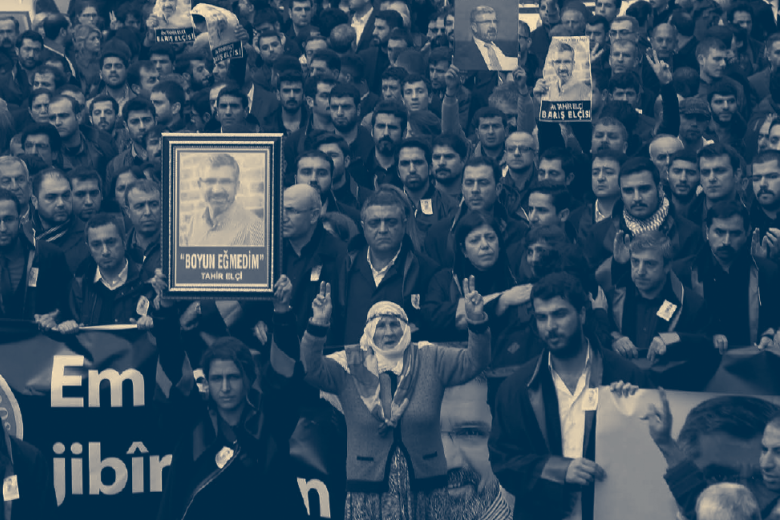Is health care a human right?
Trevor Burrus claims that health care cannot be a fundamental right. He is not alone in saying this, but the way he says it is noteworthy. His article is not original (nor does it claim to be), but it represents an admirably clear retelling of an old story: Positive rights cannot be rights, this is simply a point of logic. Those who think otherwise are at best confused.
Responding to Trevor Burrus
For Burrus (Cato institute) when we talk about rights we make certain logical commitments that we cannot satisfy in the case of health care. In particular, he conceives rights as absolute, scalable and as being able to “exist together”. Health care, and other positive rights, simply do not pass this test.
Burrus never explains what it means for rights to be absolute. I suppose it means something like “unconditional”. It is unconditional that we should not be killed, but having a right to health care is conditional on the existence of scarce resources.
By scalable he means that the duty to respect the right does not become more burdensome as its coverage increases. Negative rights are scalable. To refrain from killing two hundred persons is not harder than to refrain from killing one. By contrast, universal healthcare becomes more expensive every day and presumably the same holds for all positive rights.
The point about rights existing together is known in technical literature as “co-possibility” (see. H. Steiner, An Essay On Rights, Blackwell 1994). Negative rights play nice to each other, (under certain conditions) they do not clash with other negative rights. My right not to be killed does not clash with your right not to be killed. By contrast positive rights compete with each other for scarce resources. In a medical crisis, my supposed right to receive a transplant, clashes with your supposed right to receive a transplant.
The points Burrus raises are not unimportant, but they all deserve much more nuance. They do not allow for a sweeping condemnation of positive rights. I have defended this claim elsewhere (see my own Rights Scarcity and Justice, 2014, Chapter 2).
Here I want to present a more direct rebuttal
What happens if, while taking a trip through a forest, you find a child unconscious and bleeding? Clearly helping the child would be conditional (first aid for example), not scalable and conflictive (what if I found a large family instead of a single child? I might not be able to carry all their bodies to a warm place in time to prevent hypothermia). Shall we say that as a matter of right, I owe the child nothing? That I have “at best” a moral duty to help, but nothing more serious? (This example is not mine but T. Endicott’s. In his version the child in the forest was an infant in the snow).
I think most would think the opposite. A man who passes by a child in need, is acting wrongfully and criminally. The child has a right to be rescued.
If this is true we can invert the logic of Burrus’ argument. Instead of saying the healthcare cannot be a human right because it does not meet certain formal criteria, we can say, these formal criteria cannot be exhaustive of what it means for something to be a right, because otherwise we cannot account for the rights of the child in the forest.
Burrus and many others work with an unduly narrow conception of what a right is. One can be rapidly disabused of such a conception by reading Aristotle or Aquinas. In both of these authors one can find a view of rights that goes beyond the subjective relationship between me and you. For them, to speak of rights is also to speak of the rightful ordering of things. The right to healthcare functions badly as a subjective right, but it is a part of what most would recognize as rightful and in having this status it is not lesser than other rights. The point here is not to say that Aristotle and Aquinas are right. The point is that Burrus is presenting a theory of rights as a conceptual necessity that is essentially parochial. Classical authors have had no need for that.
If one digs deep, one may find that the rigidity of Burrus arises not from logic, but from political scruples that I largely share. Rights are supposed to work mechanically to divide the world between what is mine and what is yours in such a way as to prevent polemical value judgments from being imposed on others; the sort of value judgments involved in saving one life over another, or in choosing health care spending over education spending, etc. But this just cannot be done. Reducing rights to avoid polemic is itself polemical. There is no escape from the burden of value judgement.
My conclusion
Yes, it makes sense to limit intractable disagreement, and sometimes rights can serve that function, but avoiding polemic is not the only thing that matters within rights or elsewhere. In a world rife with injustice, to deny the language of rights to those waiting interminably in a hospital corridor or languishing in overcrowded hospital rooms, is both logically unwarranted and unjust.
More blogs on Law blogs Maastricht |
G.M. Arosemena Solorzano
Assistant Professor; Maastricht Centre for Human Rights
-
The EU’s race to the bottom on asylum seekers’ rights
Throughout the EU, the rights of asylum seekers come under pressure. Overdue policy changes remain stuck in negotiations because of lacking political will. It is up to the European Commission to step up and protect the fundamental rights of asylum seekers.

-
Hurbain v. Belgium: towards a fairer balancing exercise between the right to freedom of expression and the right to privacy?
Admittedly, the right to erasure, or more colloquially, the right to be forgotten is nothing new in the European legal landscape. Indeed, this right can be found as far back as 1981 in the predecessor of the Modernised Convention for the Protection of Individuals with regard to Automatic Processing...

-
How many times can the ECtHR turn its head
Thank God for Judge Egidijus Kūris. In ECtHR ruling Ahmet Hüsrev Altan v. Turkey of 13 April, he showed that decontextualized analysis is not inherent to supranational judicial review. Once again saucing up his dissent with Bob Dylan, he asked “how many times can [the ECtHR] turn [its] head and...
